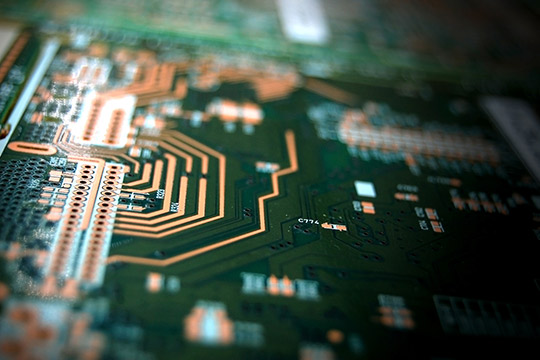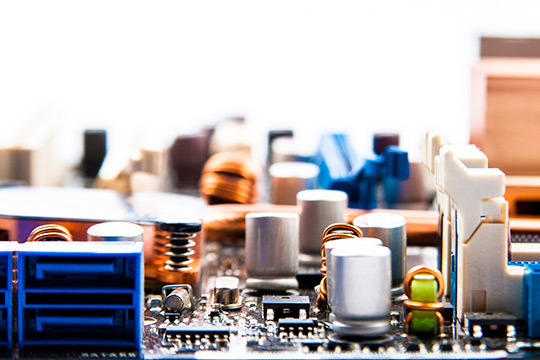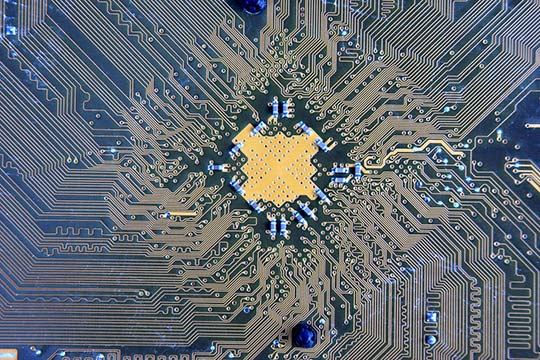TECHNOLOGY FOCUS
Powerful digital signal processing has been the key enabler of many technological breakthroughs during the last decades. 'Digital' communications brought us a worldwide wireless communications network and high-speed wireline internet access. Processor based mechatronic systems have increased efficiency, reduced waste, and raised security in nearly every application you may think of.
The interface between the "analogue" environment and the digital signal processing is the data converter. Steadily increasing resolution and bandwidth of the A-to-D and D-to-A converters, at no additional area or power consumption, were the other key enablers of this progress.
Following the trend to ever higher integration levels today most data converters are embedded in a System-on-Chip. This defines another paradigm change, posing new chances and new challenges to the concept engineers and to the designers: now they have a complete system in their hands, with all chances for optimization, but also with the need to understand the complete system as well as the tradeoffs between the various blocks and solutions.


COURSE CONTENT
The objective of this course is to teach what is necessary to understand, select and/or design the data converter under consideration of basic system aspects and tradeoffs.
We will brush up the basics of sampling, quantization, and Fourier transforms. We will look into a complete signal processing chain, discuss tradeoffs and show how to derive the requirements for the ADC. Based on figures of merit and a large database the application ranges and performance limits for the various converter architectures will be investigated. And we will spend a lot of time on understanding the different concepts such as FLASH, pipelined, SAR, time interleaved, as well as their practical. Time domain encoding, i.e. replacing voltage levels by quantization along the time axis, will be introduced. Sigma-Delta Modulators, as the workhorse of communication ICs, will get extensive treatment.
For each converter architecture, published examples will be analyzed. The basics of converter analysis and test, e.g. histogram based test, will be presented.
Having all these topics covered by one speaker makes this a very compact and coherent course with high practical relevance.
WHO SHOULD ATTEND
This course is aimed for:
- design engineers who wish to understand the theoretical and the practical aspects of the different converter topologies and their trade-offs.
- system and concept engineers who need to better understand the role of the data converter in a system, to see the choices, the chances and the limitations of the different concepts.
Pre-requisites for the course are a basic understanding of semiconductor circuits and blocks. First experience with design or application of data converters is helpful.

Day 1
During the first day, we will browse applications of data converters, brush up some theoretical background, learn the basic concepts and definitions underlying A-to-D conversion, and start looking into high speed A-to-D converters.
Applications of Data Converters
Theoretical Background
- Sampling
- Aliasing
- Quantization
- Discrete Fourier Transform
High Speed A-to-D Converter Concepts
- Definitions and Error Mechanisms
- FLASH
- Two-Step and Sub-ranging
- Folding
- Time Interleaved
- Pipelined
Day 2
During the second day, we will continue with Nyquist type ADCs, studying power and/or area efficient implementations. Then figures of merit will be introduced. Derived by statistical evaluation of a large database, graphs will clearly show trends, application ranges and tradeoffs of the various A-to-D converter concepts. After that we will cover DAC architectures, implementations and end the day with the basics of Sigma-Delta-Converters.
Efficient A-to-D Converter Concepts
- Algorithmic
- Successive Approximation
- Slope
- Asynchronous
Noise
- Thermal and 1/f Noise
- Noise Reduction: Chopping, Correlated Double Sampling
Figures of Merit, Statistics, Trends
D-to-A Converter Concepts
- Basics
- Resistor Based
- Switched Capacitor
- Switched Current
- Advanced Concepts
- Figures of Merit, Some Statistics
Oversampling and Noise Shaping Converters
- Delta Modulator
- Sigma-Delta ADCs: Basic concept and linear model
- Single Loop, Single Bit
- Higher Order
- Multi-Bit
- Feedback versus Feedforward Architecture
- Stability for Bounded and Unbounded Inputs
Day 3
The third day, we will continue with sigma-delta-converters, discussing some complex implementations and some unusual applications. Modeling and design flow will be touched. We will finish our examination of data converters by discussing the basic concept and implementations of time encoding converters.
Sigma-Delta Converters
- Unusual SDM Applications
- Bandpass and Complex SDM
- Cascaded (MASH)
- Continuous Time vs. Discrete Time
- Modeling, Design Flow
- PDM-Filter
Time Domain Encoding
- Introducing to Time Domain Encoding
- PDM and PWM Signal Generation
- Sigma-Delta DACs
- Time-to-Digital Converter (TDC)
Day 4
The last day will start with a practical example in Sigma-Delta converter synthesis and top-level simulation. We continue with concepts and aspects of converter test (the same methods can also be employed to evaluate simulation results). Thereafter basics of analog filters and the need of filter tuning will be introduced. With this knowledge we can take another look into the signal processing chain from source to ADC. A method to derive the ADC specification concludes the course.
Practical Example
- Selection, Synthesis and Top Level Simulation of a Sigma-Delta Converter for a Digital Microphone (method and results, no hands-on exercise)
Testing of Data Converters
- Back-to-Back “Analog” Test
- Transfer Curve (Code Transition) Based
- FFT-based Test
Filters
- Filter Characteristics
- Filter Implementation, Active Biquads
- Tuning
System Tradoffs
- VGA-Filter-Converter - how do I partition my system?
Said about the course from previous participants:
"Broad coverage of ADC and DAC with various concepts and architecture. Well-organized and introduced presentation."
"The course brings up new techniques and it gives a good overview of existing and future standards."
"Good mix between overview and deep information."
"Quite complete scope of different topics."
"Many references, clear overview, many examples and real circuits included, nice graphs, good slides - good reference course for the entire company!"

